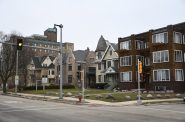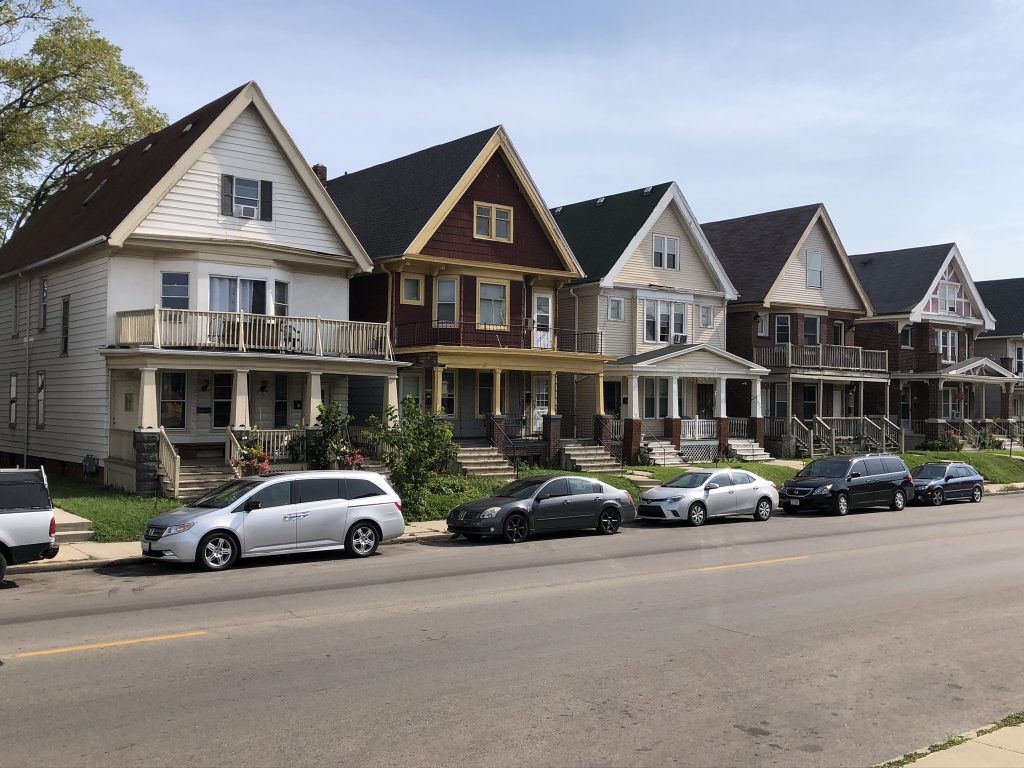Developers Selected For Early Childhood Educator Homes
Aim is to boost childcare and minority homeowners. Plus: recap of week's real estate news.
The first of 45 new, affordable homes for early childhood educators is expected to be completed by the end of 2024.
Project partners, the Community Development Alliance (CDA) and LISC Milwaukee, announced the three winners Thursday of a request-for-proposals process to select the development teams.
Envision Growth, Turner Community Partners and VIA CDC will each receive funding from the State of Wisconsin‘s American Rescue Plan Act grant to build the houses. Qualifying early childhood educators will be able to buy a house for less than the cost to construct it.
“Our vision for the homebuyers is that that they achieve housing stability, build family wealth and enhance neighborhoods, while also helping to close Milwaukee’s homeownership gap for people of color and making the early childcare education industry a more attractive career choice,” said LISC executive director Theodore Lipscomb, Sr., in a statement.
The project is one of several the CDA is engaged in. Guided by a 2021 report and plan that identified substantial racial and economic disparities in Milwaukee’s housing supply, the CDA has a goal of creating 32,000 new Black and Latino homeowners over the next three decades.
The houses are to be built near the facilities of five partner organizations: Next Door Foundation (2545 N. 29th St.); Children’s Outing Association Goldin Center (2320 W. Burleigh St.); Malaika Early Learning Center (125 W. Auer Ave.); United Community Center Ricardo Diaz Early Learning Academy (2130 W. Becher St.); and United Methodist Children’s Services Growing Tree Children’s Center (3940 W. Lisbon Ave.). According to the RFP, the five organizations’ client base is 80% families of color. Each of the centers is located in a low-income neighborhood.
The houses will each be built on vacant, city-owned lots. Each house is planned as a 1,000-square-foot, single-story structure with three bedrooms, one full bathroom and a full basement.
According to the CDA, 51 early childhood educators have completed or are in the process of receiving homebuyer counseling to become eligible to purchase a house.
The new homeowners, according to RFP documentation, would go through homebuying counseling and have an $87,000, 30-year mortgage at 4% interest. The monthly mortgage payment, inclusive of taxes and insurance, is estimated to be $736 per month. Appliances are to be provided, as is a $15,000 downpayment.
Developer subsidies would close the difference between the final sale price and construction cost. That funding is coming from a $5 million grant awarded in 2022 by the state.
“The historic investment that Governor Tony Evers has made in workforce development to support this project will continue to reduce employment barriers, like affordable housing options, that we know our skilled educators face every day,” said Department of Workforce Development Secretary-designee Amy Pechacek. “Beyond having a skilled workforce contributing to economic development, we believe it will continue to inspire community growth in Wisconsin through homeownership.”
About the Development Teams
Envision Growth, led by Oby Nwabuzor, will receive $1.8 million to partner with KPH Construction on developing nine homes near COA’s center and nine near Malaika’s center.
“As a public health practitioner, I understand the value of health and social equity, and Envision Growth is committed to building healthy people and communities. We are excited and look forward to bringing affordable housing to the early childhood education space,” said Nwabuzor.
The nonprofit VIA Community Development Center will receive $1.8 million to construct nine homes near the UCC facility and nine homes near the Growing Tree center.
“This project strongly aligns with VIA’s mission of being a partner in building strong and healthy neighborhoods where all of us can thrive, as well as our values of collaboration and collective impact,” said VIA executive director JoAnna Bautch.
Turner will receive $900,000 to construct nine houses near the Next Door Foundation center. The company is led by Keith Turner, who has worked with Nwabuzor, AndersonWebb and Seltzer-Ornst on the long-planned Carleton School redevelopment.
Both Nwabuzor and Turner are graduates of LISC’s highly-lauded Associates in Commercial Real Estate program, which is designed to train women and minorities for careers in real estate.
In the Milwaukee metro area, white residents are twice as likely to own their home as Black residents and 1.4 times more likely than Latino residents. Due to lower incomes and/or living in older properties that can require more spending, more than 55% of renters and 31% of homeowners spend more than 30% of their household income on housing, a level the federal government and other agencies have labeled as “cost burdened.”
The City of Milwaukee is also working to bolster the number of early-childhood educators. It allocated $7 million from its ARPA grant to the Wisconsin Early Childhood Association to provide bonuses to workers in the field and train more young men to enter the field. Milwaukee Succeeds reports the median starting wage for early childhood educators in the city is $13 per hour. Based on February data provided by Milwaukee Succeeds, 68% of the bonus recipients identify as Black, 20% as white, 18% as Hispanic, 3% as multiracial, 2% as Asian and 5% as other. According to research from Milwaukee Succeeds, there are 45,000 children in Milwaukee under the age of five, but only 28,000 childcare slots.
The CDA is also partnering with Milwaukee County, Milwaukee Habitat for Humanity and Emem Group to build 120 houses in the area around King Park, working with the city’s Environmental Collaboration Office to construct environmentally-friendly, factory-built houses in the Lindsay Heights neighborhood, supporting the development of Acts Housing’s $10 million acquisition fund and partnering with Milwaukee County on an initiative to develop more affordable housing in suburban communities.
Weekly Recap
Survey Finds Many City Houses Need Repairs
Iran Jennings knows firsthand about the housing conditions of her neighbors.
That’s because Jennings was part of a project by the Reclaiming Our Neighborhoods (RON) Coalition and Rocket Community Fund that surveyed the exterior of Milwaukee homes.
“I got involved because I want to see my community thrive,” Jennings said. “Doing it this way allowed me to see what challenges my neighbors are facing.”
Eighty-six residents conducted surveys in 15 Milwaukee neighborhoods.
EIGHTEEN87 Adding Riverfront Affordable Housing
The final shape of a new apartment building being constructed on a long-underutilized Milwaukee River site is now visible. Another new building could soon join it.
The five-story EIGHTEEN87 on Water will include 79 apartments, 60 of which will be set aside at affordable rates for those making no more than 60% of the county’s median income. Sixteen of the affordable units will be reserved for those with disabilities.
Developer Brandon Rule of Rule Enterprises is co-developing the project with Madison-based nonprofit Movin’ Out. Continuum Architects + Planners is leading the design. Emem Group is serving as the owner’s representative. Catalyst Construction is serving as the general contractor.
It replaces a one-story industrial building at 1887 N. Water St., just west of N. Humboldt Avenue. New Berlin Grading started demolishing the prior building on the site in November 2021. It was originally constructed in 1972, long before the rest of the corridor had been redeveloped as high-end housing.
Northwestern Mutual Wins Key Vote To Close Cass Street
Northwestern Mutual‘s $500 million proposal to relocate its suburban employees to Downtown and dramatically overhaul its aging, 18-story North Building comes with a catch: the city must give up one block of N. Cass Street between E. Wells Street and E. Mason Street.
The company intends to build a glassy structure atop the street, linking its revamped tower with a rehabilitated parking structure. A plaza would be constructed along E. Mason Street, facing its 32-story Tower and Commons.
The Department of City Development (DCD) and Mayor Cavalier Johnson endorsed the request, and a $30 million subsidy agreement, when the company unveiled the deal to great fanfare in February. The Common Council concurred, unanimously adopting the agreement in March.
DCD Commissioner Lafayette Crump said the company’s investment, in an era of remote work, reinforced that Downtown was the premiere job center in the Milwaukee area and a leader in the Midwest.
Meeting Will Guide Design of Bronzeville Arts Center
With an architect and executive director in hand, the Bronzeville Center for the Arts (BCA) is moving forward on the design of its “world-class art and cultural center” that will serve as a showcase for Black artists.
The nonprofit organization will host a public scoping session Wednesday evening to discuss the programming, exhibits and community space within its planned cultural center.
After winning a state request for proposals in 2022, the organization is planning to develop a $55 million, 50,000-square-foot facility at the northeast corner of the intersection of N. Martin Luther King Jr. Dr. and W. North Ave. The new building would replace a shuttered Wisconsin Department of Natural Resources complex.
Wednesday’s meeting will be held at America’s Black Holocaust Museum, 401 W. North Ave., from 5:30 to 7 p.m.
Saz’s To Expand Walker’s Point Venue
Saz’s Hospitality Group is preparing to break ground on its newest project. A major expansion to its Walker’s Point venue, South Second, is set to commence later this summer.
New additions to the existing venue, 838 S. 2nd St., will include an all-seasons patio, outdoor bar, elevated balcony and a parking lot for event guests.
After the expansion is complete, the updated Walker’s Point venue will have an outdoor capacity of 225. Including indoor space, the venue will be able to accommodate up to 300 guests for a cocktail reception.
“We’re very excited to start this project,” said Casey Sazama-Schneck of Saz’s, in a statement. “We have seen so much potential in this space and are ready to transform it with these additions. It’s going to really elevate the event experience for our future clients and guests.”
Your Input Sought On How To Get To One Million Residents
Mayor Cavalier Johnson isn’t backing away from his commitment to grow the city of Milwaukee to one million residents, an increase of more than 400,000.
“Yes, it’s ambitious, but let’s be ambitious,” said Johnson during his State of the City speech Monday afternoon.
Twenty-four hours later, the Department of City Development (DCD) will reveal just how ambitious it’s willing to be.
DCD is hosting the first public meeting on its Growing MKE plan, a proposal to adjust the city’s zoning code and city plan to accommodate growth.
If you think stories like this are important, become a member of Urban Milwaukee and help support real, independent journalism. Plus you get some cool added benefits.
Plats and Parcels
-
New Third Ward Tower Will Be Milwaukee’s Priciest
 Mar 3rd, 2024 by Jeramey Jannene
Mar 3rd, 2024 by Jeramey Jannene
-
New Corporate Headquarters, 130 Jobs For Downtown
 Feb 25th, 2024 by Jeramey Jannene
Feb 25th, 2024 by Jeramey Jannene
-
A Four-Way Preservation Fight Over Wisconsin Avenue
 Feb 18th, 2024 by Jeramey Jannene
Feb 18th, 2024 by Jeramey Jannene






















